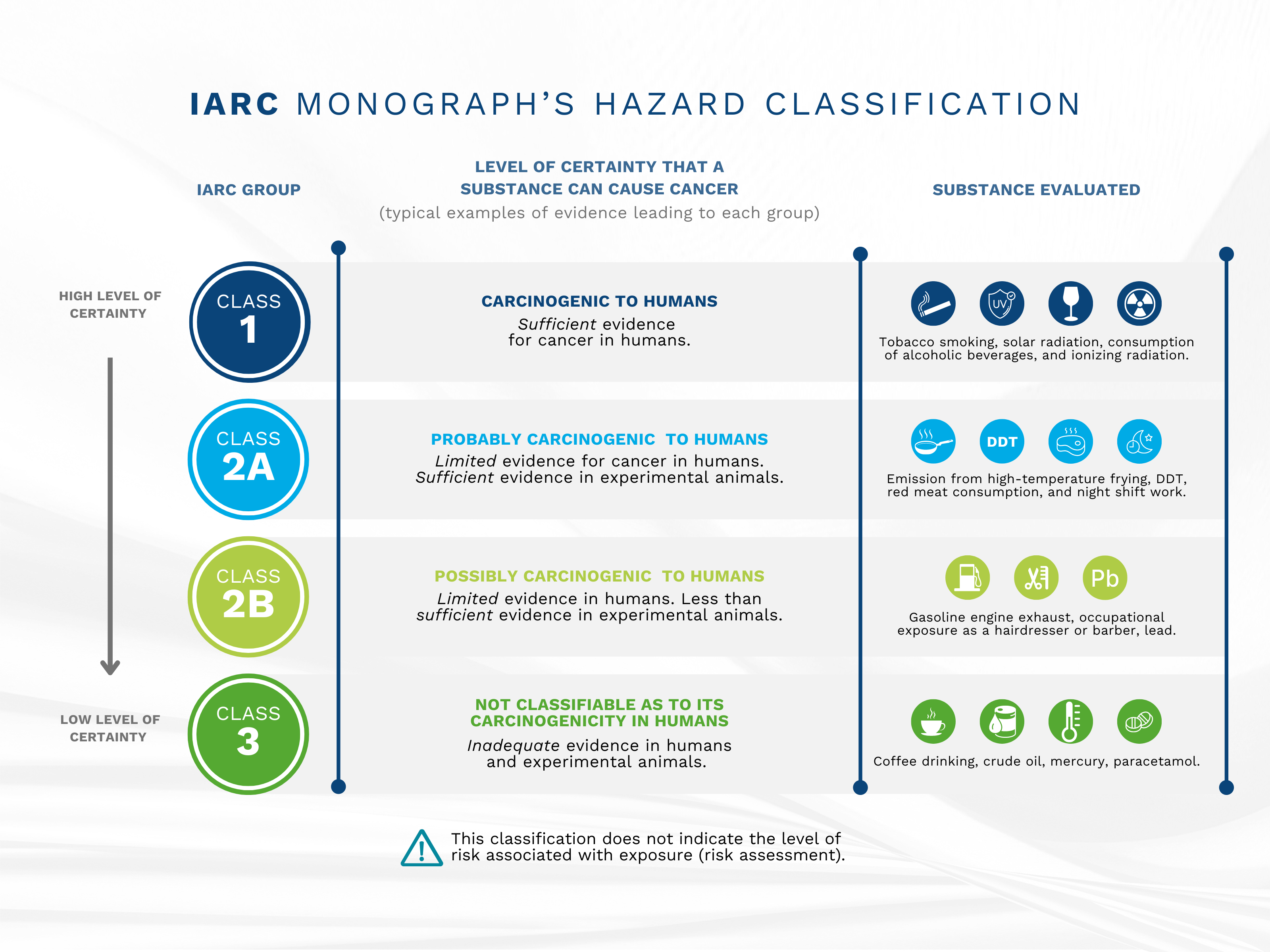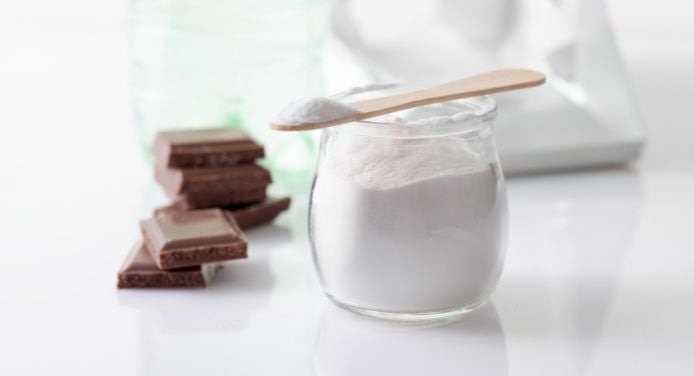Artificial and non-nutritive sweeteners have been around for decades. Their use in our daily foods and consumer products has expanded from coffee sweeteners to sodas, gums, medicines, and toothpaste, to name a few. The safety of aspartame – more commonly called NutraSweet, Equal, or Sugar Twin – has been under scrutiny as the WHO’s International Agency for Research on Cancer (IARC) has categorized the ingredient as a Class 2b carcinogen, which means the ingredient may cause cancer. This classification caused a stir when it hit the news headlines because aspartame has been in the global food supply for over 40 years.
To understand what this classification means, it is helpful to understand the IARC categories:

- Class 1 – Carcinogenic to Humans (alcohol consumption; smoking, tobacco)
- Class 2A – Probably Carcinogenic to Humans (emissions from high-temperature frying, consumption of red meat)
- Class 2B –Possibly Carcinogenic – Asian pickled vegetables and aspartame
- Class 3 – Not Carcinogenic – Coffee was moved to this category from 2B in 2016
The IARC Monograph depicts the strength of evidence that an agent can cause cancer in humans. This classification includes foods and non-foods alike. It is important to note that while this classification indicates the strength of evidence, it does not indicate the degree of cancer risk, which is an important differentiator.
The announcement of the aspartame classification raised a lot of criticism from scientists and the FDA alike. The FDA claimed aspartame is one of the most studied food additives in the human food supply and stood by its recommendation that it is safe for consumption. The FDA-acceptable daily intake (ADI) for aspartame is 50 mg/kg. This would mean a 150-pound adult could consume about 17 cans of diet soda and stay within the ADI. Interestingly, despite the new classification, another agency within the WHO – the Joint Expert Committee on Food Additives – said it would not change the guidelines on how much aspartame is safe for consumption.
The studies that triggered the WHO’s announcement were not without flaws. Last year, a French observational study evaluating artificial sweetener use found a slight increase in cancer risk. However, this study could not specifically point to aspartame as the cause of this increased risk. Another study in Italy on mice and rats showed cancers linked to aspartame. This study was later criticized for its methodology, including criticism from The European Food Safety Authority, which assessed the data.
A possible fallout of this information is that the public is probably more confused than ever, which could impact their selection of safe food products. Many scientists will ask for more evidence, and the food industry has already expressed confidence that the current intake levels are safe.
Although the studies have been criticized, their findings should not be ignored. As scientists, we build on our knowledge with further research. Mérieux NutriSciences and Biofortis Research are at the forefront of food safety and human clinical research. Together, we offer comprehensive solutions to support our clients and have broadened our scope of scientific specialties that include:
- Microbiology Testing
- Chemistry Testing
- Clinical Research Services
- Literature Reviews
- Education/Training
- Certification
- Research Studies and Validations
- Regulatory Labeling
- Consulting
- Sensory Studies
- Digital Resources
Present worldwide, we have more than 100 accredited laboratories and offices with a team of over 8,000 committed employees.
We strongly believe that together, we can create solutions to offer our customers and the planet:
BETTER FOOD. BETTER HEALTH. BETTER WORLD.
For further details on how Mérieux NutriSciences can assist you, please explore our services here or contact us.
References
Aspartame hazard and risk assessment results released. World Health Organization. https://www.who.int/news/item/14-07-2023-aspartame-hazard-and-risk-assessment-results-released
Aspartame and Cancer Risk. American Cancer Society. (2023, July 14). Aspartame hazard and risk assessment results released. World Health Organization. https://www.who.int/news/item/14-07-2023-aspartame-hazard-and-risk-assessment-results-released
Rigby, J. (2023, July 13). Exclusive: WHO's cancer research agency to say aspartame sweetener a possible carcinogen. Reuters. https://www.reuters.com/business/healthcare-pharmaceuticals/whos-cancer-research-agency-say-aspartame-sweetener-possible-carcinogen-sources-2023-06-29/
Neuman, S. (2023, July 14). What you need to know about aspartame and cancer. NPR. https://www.npr.org/2023/07/14/1187692366/aspartame-cancer-possibly-carcinogenic-sweetener
